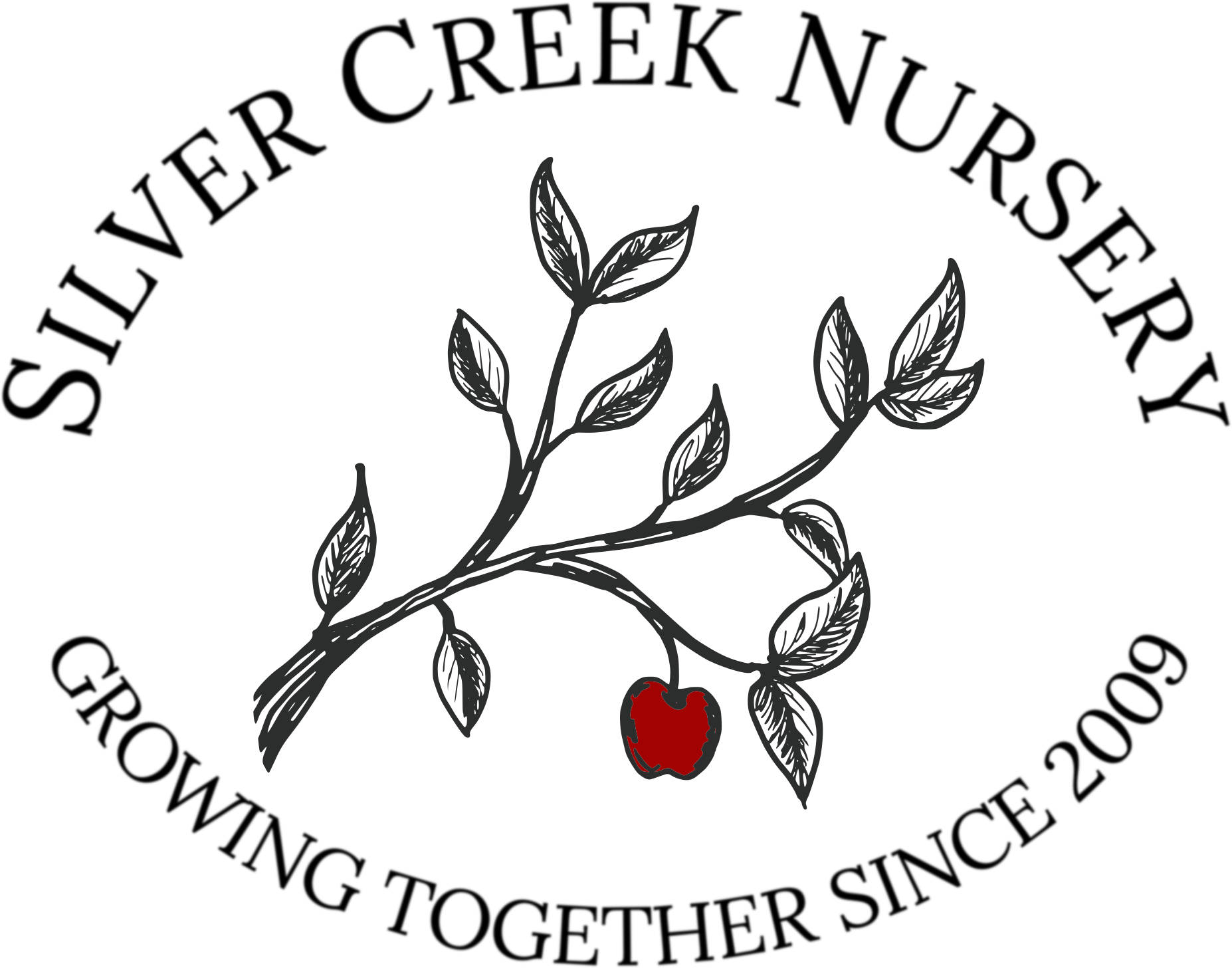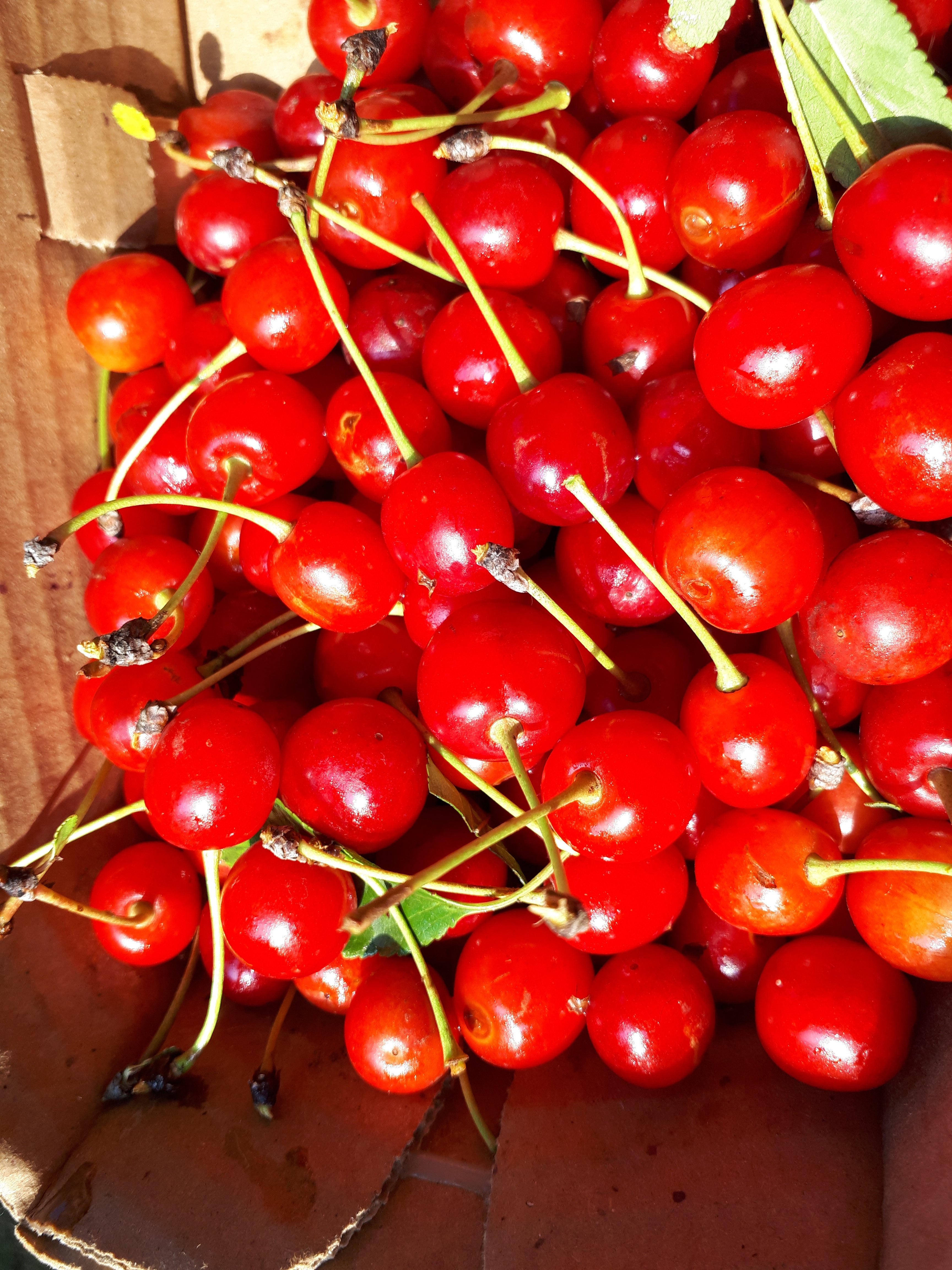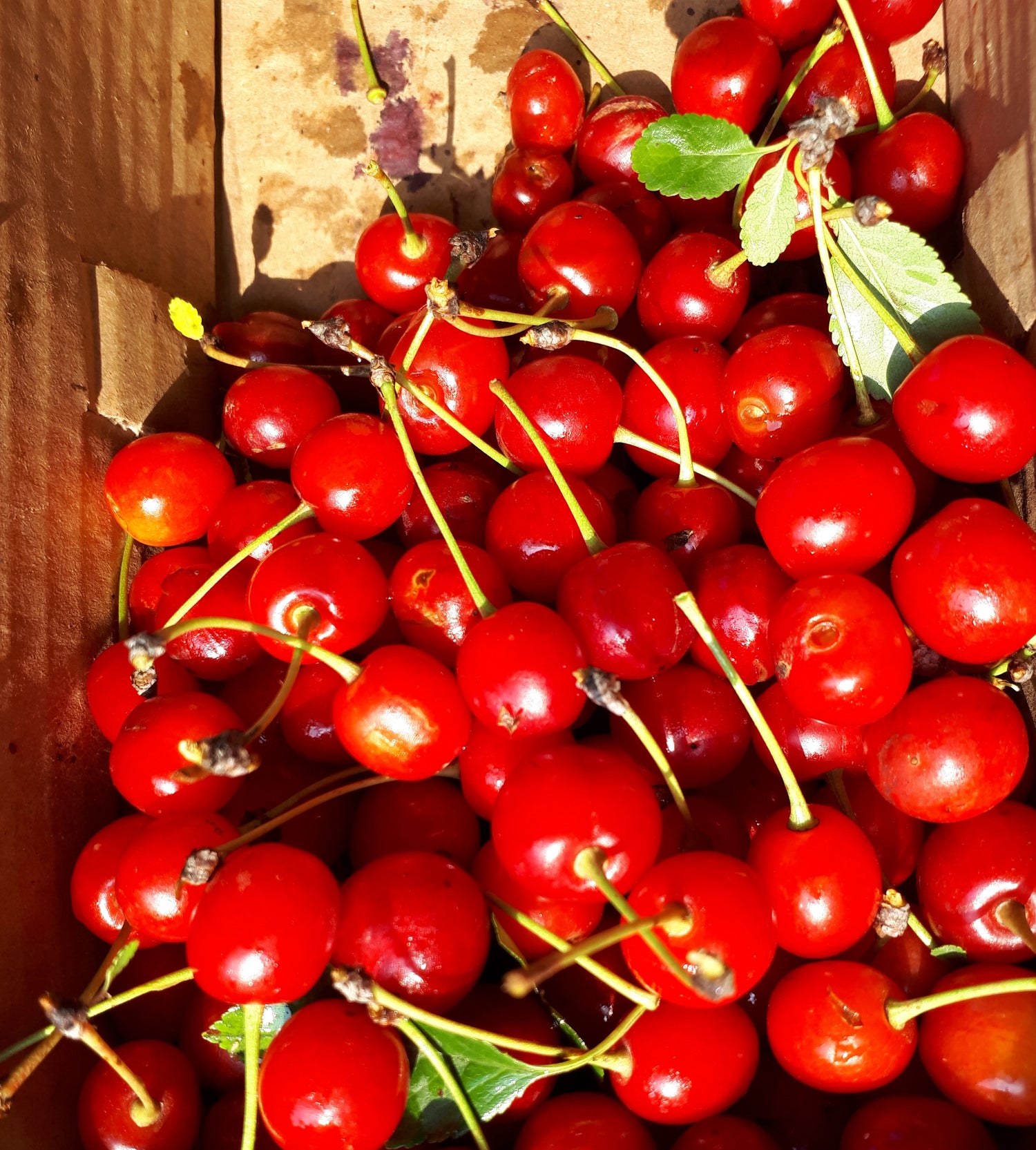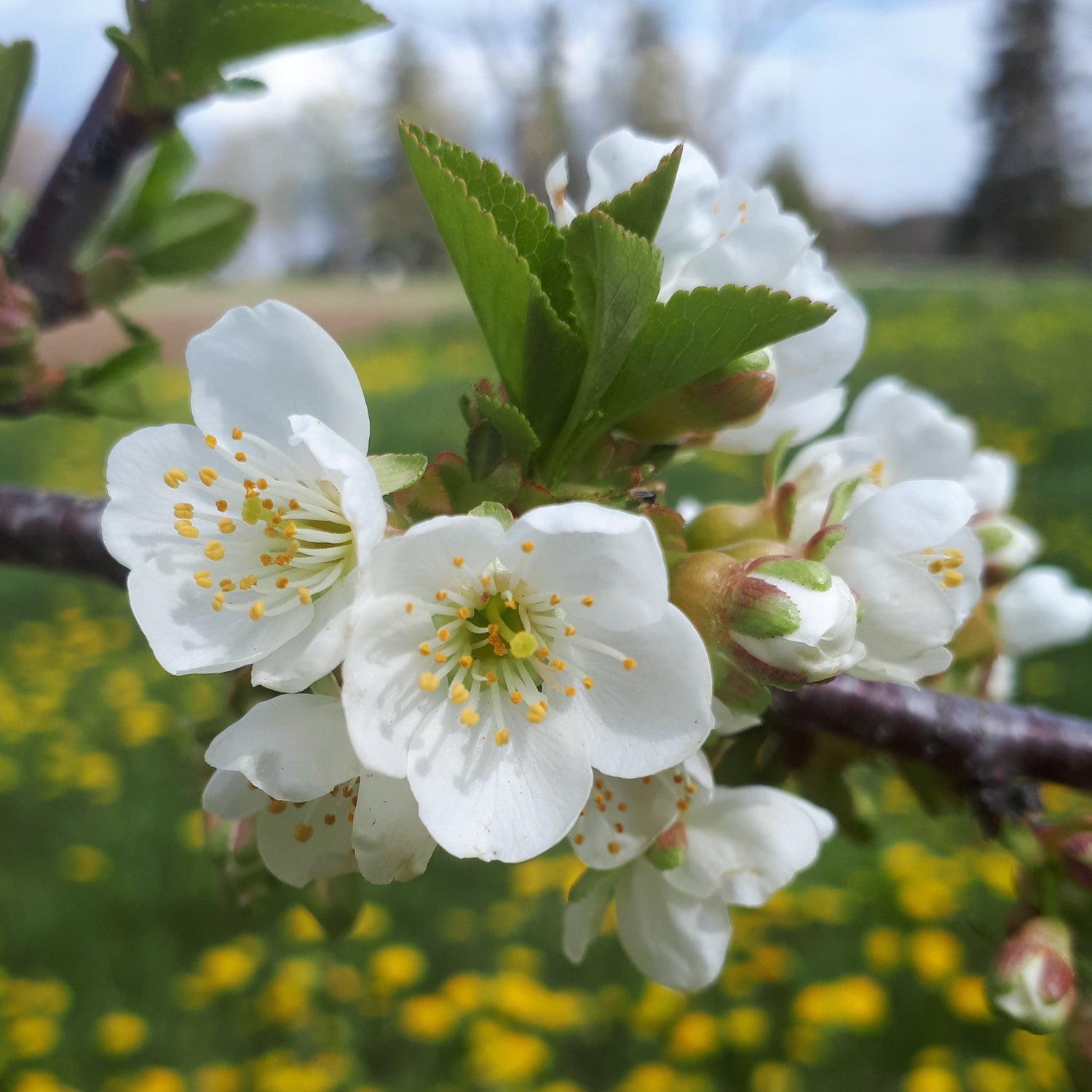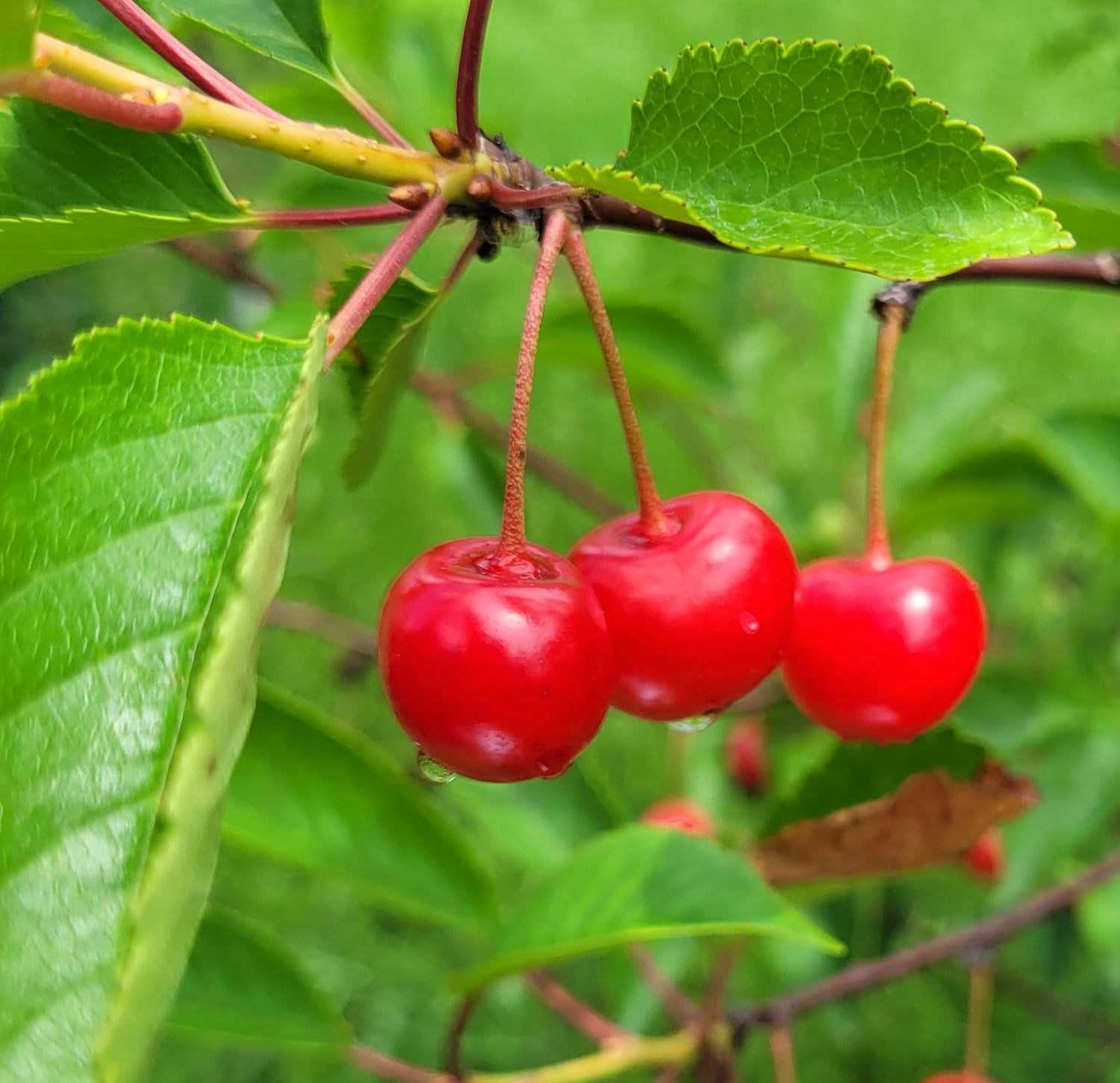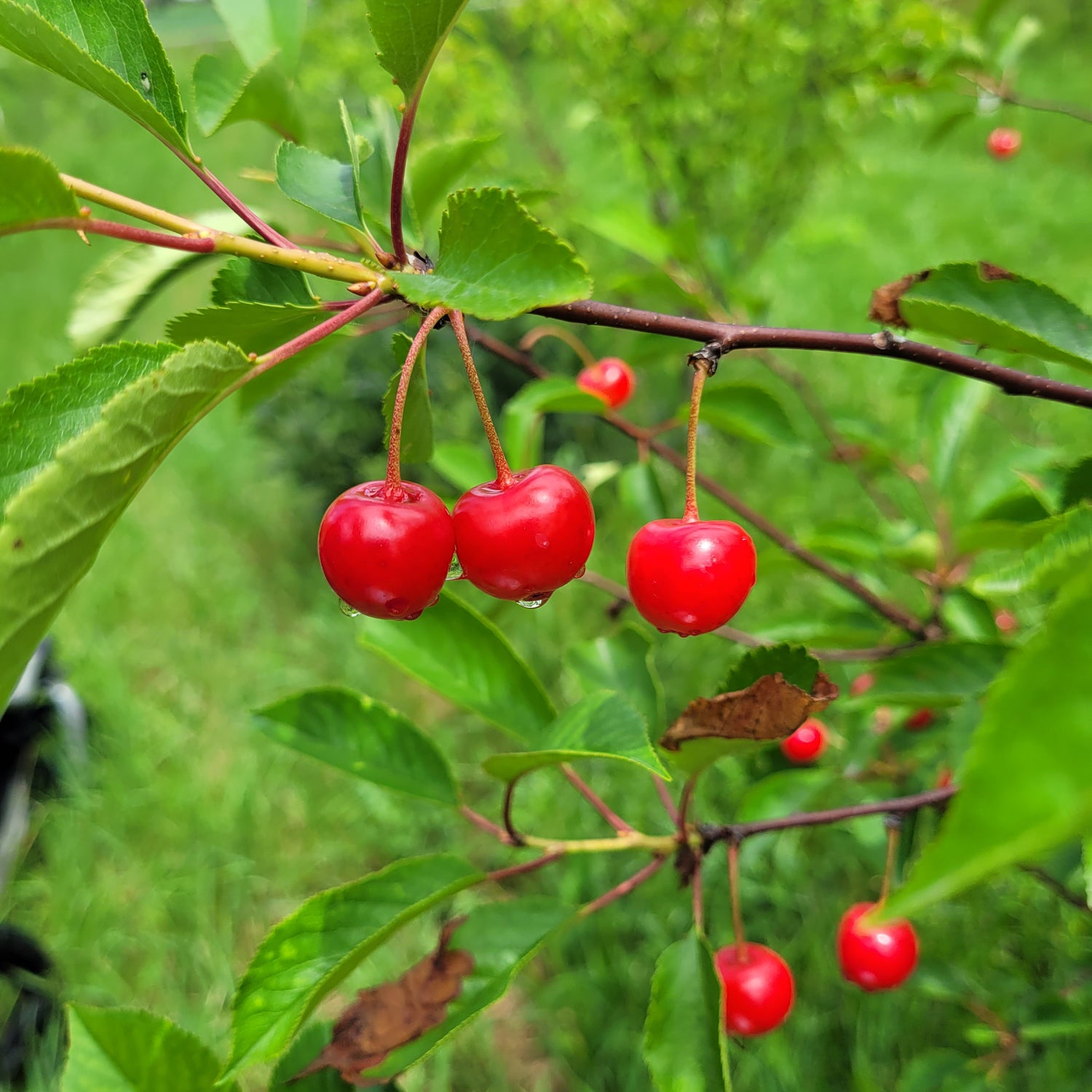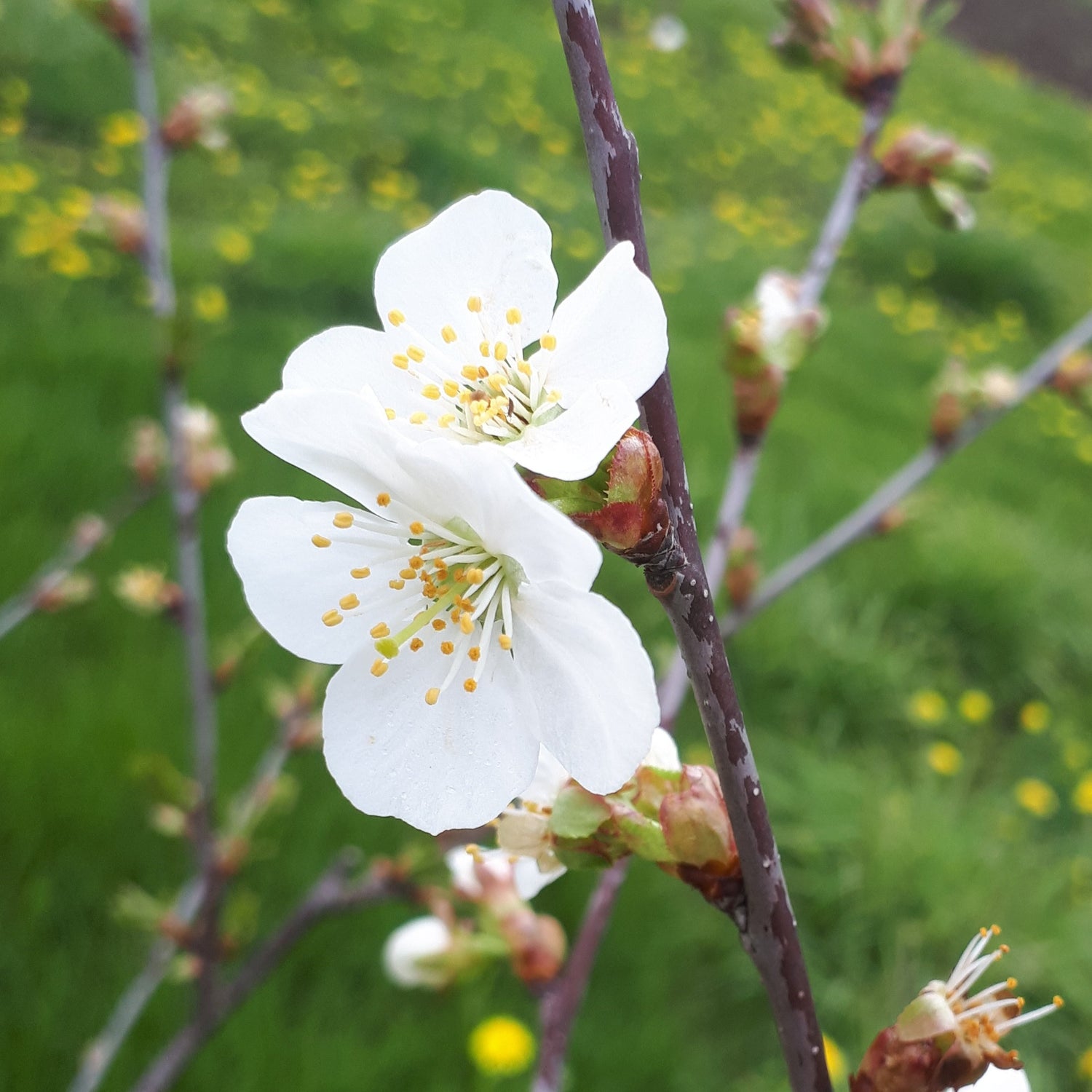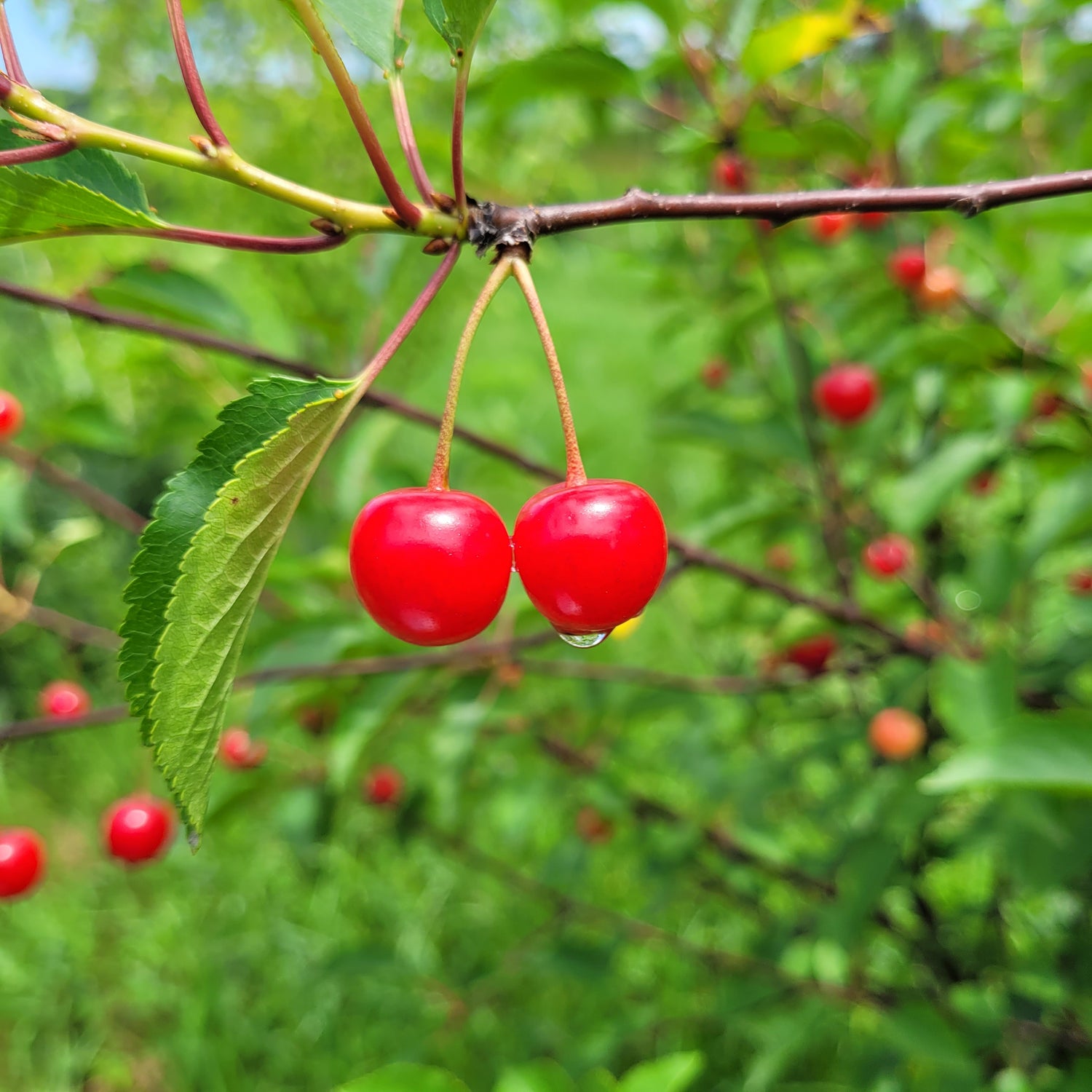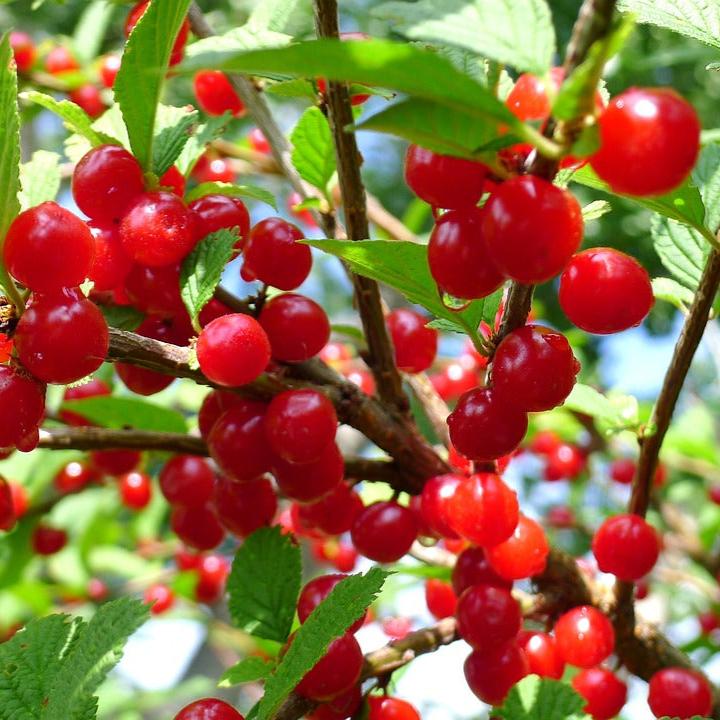Sour Cherry Trees
Prunus cerasus
A little less popular but hardier than their sweet cousins, sour cherries are an excellent addition to any yard or orchard whether they are producing lovely white flowers in the spring or profusions of bright red fruit in the summer. The cherries can be eaten fresh by those who enjoy a tart burst of flavour but they are classically best known for being used to make such delicacies as cherry pie.
We offer both regular sour cherry trees and the hardier and smaller dwarf sour cherry bushes.
Sour cherries are self-pollinating. Sour cherries and sweet cherries do not cross pollinate.
Sort by:
6 products
6 products
History: Meteor sour cherries were introduced by the University of Minnesota in 1952 as part of an effort to breed more cold hardy varieties.
Why We Grow It: Winter hardiness, reliable cropping, and a resistance to leaf spot make Meteor a good choice for the backyard. The fruit is bright red with yellow flesh. Meteor is classified as an amarelle type sour cherry, similar to Montmorency. It is excellent for making pie.
Check our our blog post with some tasty sour cherry recipes!
History: Montmorency sour cherries date back over 400 years, originating in the Montmorency Valley in France. From there they spread to England and eventually to North America where they are the most commonly grown sour cherry by far. Products that contain sour cherries are almost guaranteed to use this variety.
Why We Grow It: It's hard to ignore such a classic and beloved sour cherry. Montmorency produces bright red cherries that are perfect for making cherry pie, preserves, and jams. Montmorency is an amarelle cherry.
Check our our blog post with some tasty sour cherry recipes!
History: North Star sour cherries were created by the University of Minnesota as part of an effort to create varieties that are more resistant to the cold. They were introduced in 1950 and recently have been growing in popularity as a backyard variety.
Why We Grow It: North Star is a sour cherry with bright red skin which darkens as it ripens. It has an excellent flavour. The trees have a compact and weeping growth habit, making them an attractive addition to your yard whether in bloom in spring or bearing fruit in the summer. They are also self-pollinating, very hardy, and resistant to leaf spot and brown rot.
Check our our blog post with some tasty sour cherry recipes!
Available only for pick-up at nursery.
History: Meteor sour cherries were introduced by the University of Minnesota in 1952 as part of an effort to breed more cold hardy varieties.
Why We Grow It: Winter hardiness, reliable cropping, and a resistance to leaf spot make Meteor a good choice for the backyard. The fruit is bright red with yellow flesh. Meteor is classified as an amarelle type sour cherry, similar to Montmorency. It is excellent for making pie.
Check our our blog post with some tasty sour cherry recipes!
Species: Prunus tomentosa
History: Nanking cherry is native to parts of China, Tibet, Korea, and Mongolia, and possibly northern India. It has long been cultivated in Asia for its tart fruit which is used in pickling, making wine, juice, and jam, and as an ornamental plant. It was introduced to Britain in 1870 and the US in 1892 where it is also planted in hedgerows as a windbreak. Breeding programs in the US, Canada, and Russia began in the 1920s to make the fruit more palatable fresh but by the 1940s interest had unfortunately waned.
Why We Grow It: Although more closely related to plums than cherries, Nanking cherry is great for a variety of uses including wine, juice, jam, and as an ornamental plant thanks to their attractive pinkish-white blossoms. Some enjoy eating the tart fruit fresh as well and they are also popular with birds and wildlife. Nanking cherries are hardy and tolerant of quite cold weather, making them an excellent option for most parts of Canada.
Species: Prunus cerasus
History: These Meteor seedlings are grown from seeds we've collected here at Silver Creek Nursery from our own trees! Meteor was introduced from the University of Minnesota in 1952.
Why We Grow It: Seedling fruit trees are a great way to add some diversity and mystery to your garden or orchard! The parent variety, Meteor, is a reliable, hardy variety that is great for pies. They naturally have a more compact growth habit. For a full description, see our Meteor page here.
Please Note: Since sour cherries tend to stay true to type more than apples, these seedlings will likely bear a strong resemblance to their parent variety. However, any specific information listed on this page should be taken with a grain of salt as there may be some variation from the parent tree.
